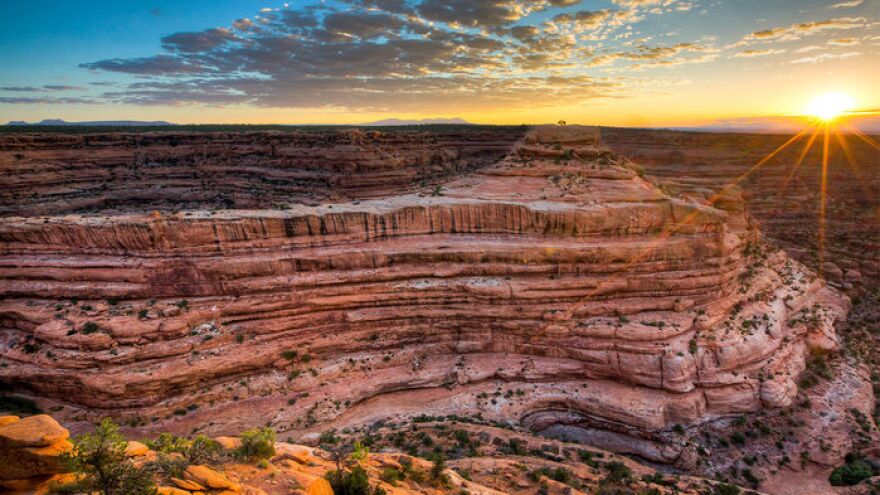The U.S. Interior Department says it’s strengthening ties with tribes in managing some federal lands. It recently ordered its agencies to deepen collaborations with Indigenous nations in sacred and culturally important areas.
The directive outlines how the National Park Service, Bureau of Land Management and the U.S. Fish and Wildlife Service should consult with tribes over land stewardship. The agency says its trust responsibility and treaty rights compel it to protect American Indian and Alaska Native interests and further nation-to-nation relationships.
Last November, Interior Secretary Deb Haaland signed an order to further such partnerships. Since then, co-stewardship agreements have been made with the Navajo, Hopi and three other tribes to co-manage Bears Ears National Monument in southern Utah. Other similar arrangements have also been made in Montana, Virginia and Idaho.
Haaland, a member of New Mexico’s Laguna Pueblo, says Indigenous people have long used nature-based approaches in managing wildfires, drought and famine, and that knowledge could bolster resilience to the effects of climate change.
“By acknowledging and empowering Tribes as partners in co-stewardship of our country’s lands and waters, every American will benefit from strengthened management of our federal land and resources,” said Haaland.
The agency says part of its goal is to safeguard traditional subsistence and cultural practices on lands that include sacred and burial sites as well as wildlife habitat and sources of Indigenous foods and medicines.



